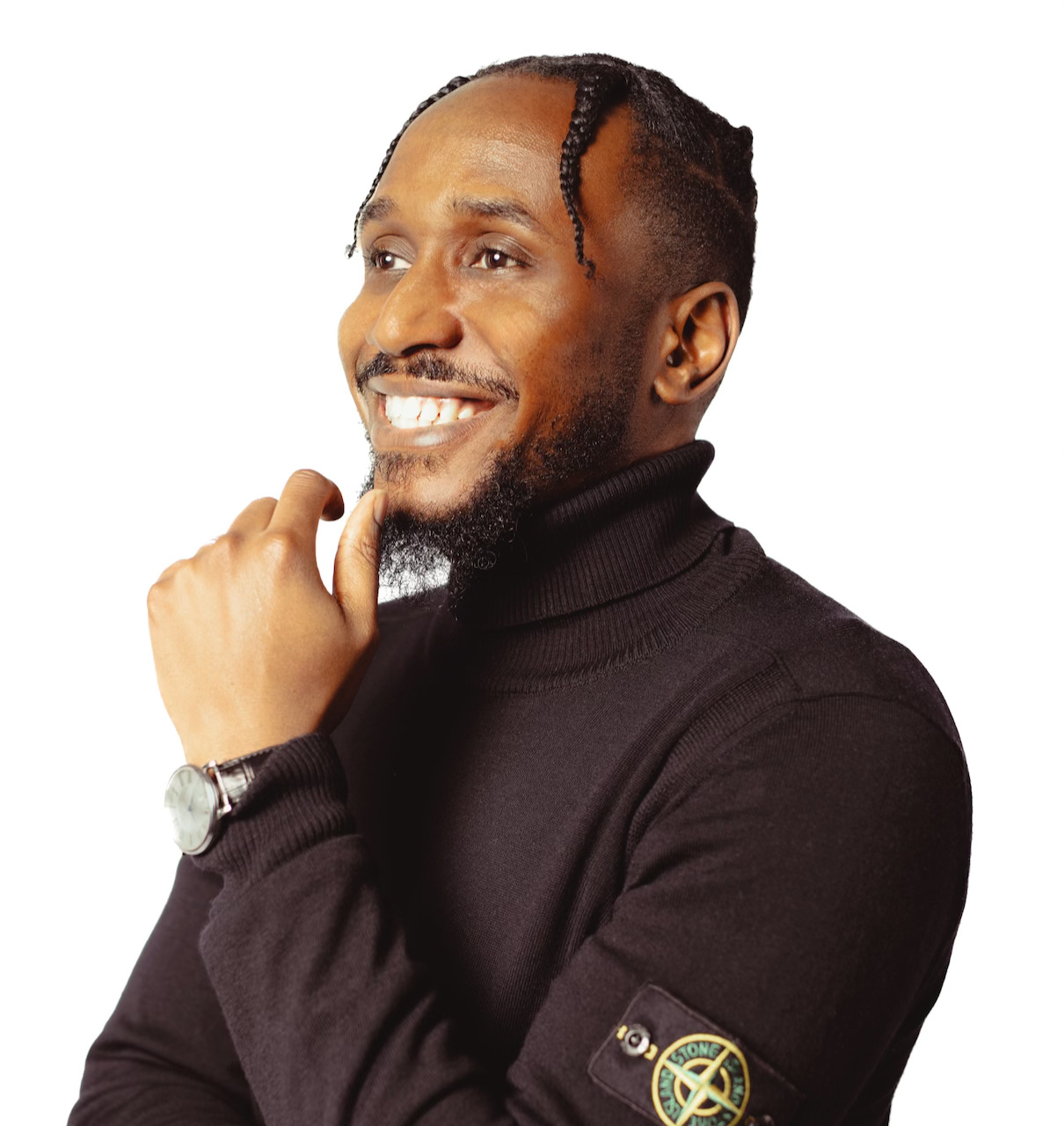The Interview: Jeffrey Wotherspoon
He could have wound up in prison. Now he coaches prisoners as well as senior leaders, executives, and world-renowned organizations.
Jeffrey, a coach, facilitator, and systems coach, spoke to me at 10 o’clock at night in London after a long day. I asked if we should reschedule? No, he said. Let’s do this. I point this out because this is indicative of his commitment and character. His website is here. Connect with Jeffrey on LinkedIn.—Steph

Tell us about yourself.
I'm a proud husband, married six years, and I'm a girl dad—I've got two daughters, ages 2 and 4 months. I hope to have a son one day. The other thing I'll share is that my faith is important to me.
I am an executive and leadership coach, working with senior leaders, teams and systems. My work as a leadership coach is primarily program based, meaning leaders within a particular industry will come together, maybe from different companies, in a centralized program. I also work with young men between the ages of 15 and 30, in prison, in London and South East England.
What is your training and certification as a coach?
I’ve picked up quite a bit of training along the way. Coaching is important, and I really want to have a mastery and broad scope for my clients. I am a certified executive coach through the Institute of Leadership and Management. I am also an accredited career coach; I’ve probably coached 500 people on their career paths.
In addition, I am trained in Organizational Relationships and Systems Coaching through CRR Global, I’m a debrief practitioner for the Roche Martin emotional capital assessment and 360 report, and I’ve trained in Lewis Deep Democracy, too. Those are some trainings and certifications that come to mind.
I’m accredited through the International Coaching Federation, the Association for Coaching, and I’m a director and founding member of the Universal Coaching Alliance (UCA), which is an accreditation and membership body that launched in March. We’re just finalizing our accreditation now, so I will be among the first coaches to be accredited by three different membership bodies!
Tell us more about your previous career; how does that influence you as a coach?
My prior career was actually youth work, specifically working with high-risk young people, ex-offenders or gang leaders, helping them turn their lives around. During that time, my manager, who was training to be a coach, practiced on me as a client. I knew instantly that I wanted those skills for myself, and I actually became a coach to do the work I do in prisons.
Working in prisons has made me very skilled in the corporate sector. There are distinctions between the two, of course: prison is a different world that world runs by its own rules, and you have to play by those rules to function there. But in terms of the similarities, people want something better for their lives in both environments.
As a coach and trainer in prison, you have to get people's attention and engage them in a way that's meaningful and does not make them feel silly, because they all wear a mask—everyone's trying to be a big boss-type person to stay safe. So, my goal is to help them open up, to get past any potential suspicion or self-consciousness, and see better for themselves.
This underlying principle works the same way in the corporate world. Even if someone is a director, or a chief officer, they're usually very competent because they have learned how to fit in a role—but inside they still have insecurities; they don't really know who they are. They struggle to show up and bring their uniqueness as a leader. Or, they want something more for themselves, but can cite a million reasons why it’s not possible.
What motivates you to work in prisons?
I came from a very similar environment to the people I work with in prison, and the truth is I didn't believe I was employable. I had no idea what I wanted to do. Of course, I wanted to be a footballer when I was younger, but then life happens, and I would have gone down any route whatsoever. If you said, Jeffrey, maybe you should be a teacher, I would have said, okay. If you said I should be in IT, or in data, okay. I had no idea of my skills.
Many people in prison, or going to prison, are just like me. It's not that they're inherently bad people who want to do bad stuff—they're lost. So I thought, what if I could help them find their way.
The other thing about coaching is it's self-directed. I'm not going to walk up into a prison and say you shouldn't have done this. I think everybody there probably knows that, but they did it anyway. With coaching, you listen to yourself. So, if your own voice is now telling you to do something positive, guess what you’re going to listen to?
What are you like as a coach?
I would say who I am and how I appear has something to do with it. My race is a new thing for many clients, primarily because there aren't many Black coaches working at the executive or senior leader level. No doubt, there are stereotypes to overcome, and yet, increasingly, clients will say they chose me because my profile was “different” and quite refreshing for them.
I am authentic as a coach. I'm most effective when I'm me. I genuinely, truly meet people where they’re at, and I'm able to do it at a profound level because I meet murderers, rapists, child molesters, terrorists, thieves, fraudsters, people who burgle and deal drugs, and violent gang members. To be clear, I do not want these behaviors in my community, or any community for that matter, so my main purpose as a coach is to help those who want to change—which is the overwhelming majority. I meet these people, I interact with these people, I coach these people, I laugh with and hug these people, and therefore, I can meet a person wherever they're at, with whatever they bring, without judgment. I think that comes through.
Finally, I’m extremely challenging, but I’m gently challenging. In this way, I’m not the one putting pressure on people—they are putting pressure on themselves.
What do you wish everyone knew about coaching?
Coaching has the ability to change your life. Very simply, very profoundly. I coach in prisons is because it's the most effective intervention I know. If I find one more effective, I'll do that. But we're talking about people—it’s the most effective method I know to help people change.
What is your vision for the coaching industry?
I would love for it to be professionalized in a particular way, and this is partly why I've become a founding member and director of the UCA. I personally know great coaches who care, who are making positive shifts in people's lives and who aren't accredited, and I think they should be so clients can have that confidence.
On the other hand, people slap the title “coach” on their LinkedIn profile, and they have a limited understanding on the true essence of coaching. Many of them see it as synonymous with mentoring or think it’s about giving advice, and it's damaging the field. So that's one of my visions and hopes for coaching. I think it's a great skill and I'd like to contribute to the field as a whole gaining more credibility.
This interview has been edited for length and clarity. (SB)






Great interview